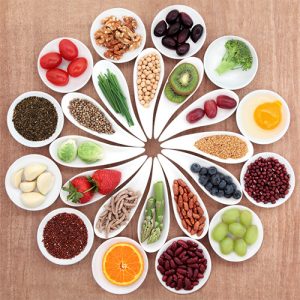 The way you nourish your body influences many different aspects of your health. In fact, you may not even be aware of the ways that your diet might change your health for the better — or worse. Everyone knows that high levels of sugar or lots of bad fat can lead to heart disease, type 2 diabetes, and other conditions. But what are the other ways that food affects your health, even on a day-to-day basis?
The way you nourish your body influences many different aspects of your health. In fact, you may not even be aware of the ways that your diet might change your health for the better — or worse. Everyone knows that high levels of sugar or lots of bad fat can lead to heart disease, type 2 diabetes, and other conditions. But what are the other ways that food affects your health, even on a day-to-day basis?
Cardiovascular Disease
You probably know that many types of foods — especially foods that are common in the American diet — put you at a higher risk of cardiovascular disease. Heart conditions are among the leading causes of death in the United States. This is not surprising, considering that the average American diet contains a high amount of fatty foods and few heart-healthy foods.
Coronary heart disease occurs when the valves of the heart build up with plaque, narrowing the flow of blood through the organ. This also raises the likelihood of a blood clot forming in the heart, which can lead to a heart attack. Fat and cholesterol-heavy foods are one of the leading culprits in the formation of heart disease.
Foods that contribute to heart disease include animal products like meat (especially red meat) and dairy products. Having a diet high in grains can also contribute to cardiovascular disease.
However, many foods can contribute to better heart health. These include leafy greens, such as spinach; berries; healthy fats, such as avocado and fish; nuts; chocolate; and legumes.
Type 2 Diabetes
Type 2 diabetes is at least partially genetic. However, the foods that you eat play a significant role in your risk of developing the disease. It is also related to being overweight, which is often related to diet (as well as exercise and genetics).
Diabetes develops at least partially as a result of a diet that is high in fat and sugar and low in fiber. Eating empty-calorie, high-fat meals that are lacking in healthy protein and plant matter cause your pancreas to work less efficiently. Of course, one of the biggest culprits in the development of type 2 diabetes is sugar, especially in the form of desserts, such as cookies, candy, and cake.
However, a number of foods can help you to fight the onset of type 2 diabetes. If you have a genetic disposition to develop the disease, you may want to adjust your diet. The best foods to keep blood sugar levels in check include Greek yogurt, fish, leafy greens, cinnamon, eggs, and nuts. It is also important to eat plenty of fiber to avoid the onset of diabetes.
Obesity
The United States has a high rate of obesity, which can lead to a huge number of health conditions. Obesity has many causes, including genetics, a lack of exercise, and a poor diet. A high-sugar, high-fat diet with too many calories is the quickest way to become obese. However, another crucial factor is your eating habits, which can include when you eat and whether you overeat (including eating when you are not hungry). Obesity can lead to such health conditions as high blood pressure, heart disease, cancer, stroke, fatty liver disease, and breathing problems.
At Fletcher Chiropractic, we believe that a healthy diet leads to a better quality of life and is likely to increase your lifespan. Heart disease is one of the leading causes of death for Americans. However, eating a diet full of healthy fats, fruits, vegetables, and protein may help to extend your life.
